Gaining weight in a healthy way is key for fitness lovers. It’s about building lean muscle, eating more calories, or getting a more muscular look. There are strategies and techniques that can help you meet your fitness goals. This guide will share effective methods and insights to help you gain weight healthily and set up success for the long term.
Key Takeaways
- Learn the basics of healthy weight gain, like needing more calories and the right balance of nutrients.
- Add high-protein foods to your diet to help with muscle building and weight gain.
- Do strength training exercises that make muscles grow, focusing on big movements and getting stronger.
- Plan and prepare meals well to keep your calorie intake steady and eat nutrient-rich foods.
- Look into weight gain supplements, but use them wisely and think about what you really need.
Understanding the Fundamentals of Healthy Weight Gain
To gain weight healthily, it’s key to understand the basics of weight gain. At the heart of this is the idea of a calorie surplus. This means eating more calories than you burn daily. This surplus gives your body the energy to build lean muscle, which is key for healthy weight gain.
The Role of Calorie Surplus in Weight Gain
Getting a calorie surplus is the main way to gain weight. By eating more than your body needs, you give your body extra calories to use for muscle growth. You can increase your food intake by choosing high-calorie foods that help muscle growth.
Macronutrient Balance for Lean Muscle Building
Having the right balance of protein, carbohydrates, and healthy fats is also crucial for building lean muscle. Protein helps build muscle, while carbs and fats give you energy for workouts and recovery. Finding the right balance helps your body grow muscle efficiently.
| Macronutrient | Recommended Intake for Muscle Building |
|---|---|
| Protein | 1.6-2.2 grams per kilogram of body weight |
| Carbohydrates | 3-5 grams per kilogram of body weight |
| Fats | 0.5-1 gram per kilogram of body weight |
Knowing about calorie surplus and macronutrient balance helps you make a nutrition plan. This plan supports your healthy weight gain and muscle-building goals.

Incorporating High-Protein Foods into Your Diet
Protein is key for building lean muscle mass. It’s vital for your weight gain and muscle-building goals. Adding a mix of high-protein foods to your diet helps your body repair and build muscle. This leads to a stronger, more muscular body.
Here is a list of some excellent high-protein foods to consider adding to your meals:
- Lean meats (chicken, turkey, lean beef, pork)
- Fish and seafood (salmon, tuna, tilapia, shrimp)
- Eggs and egg whites
- Greek yogurt and cottage cheese
- Legumes (lentils, chickpeas, black beans)
- Nuts and nut butters
- Protein powders (whey, casein, plant-based)
Try to have a high-protein food in every meal and snack. This helps support your lean muscle mass growth. Get creative with how you prepare your meals, like grilling, baking, or sautéing. This makes your meals fun and tasty.
“Protein is the building block of muscle, and consuming enough high-quality protein is crucial for muscle building and weight gain.”
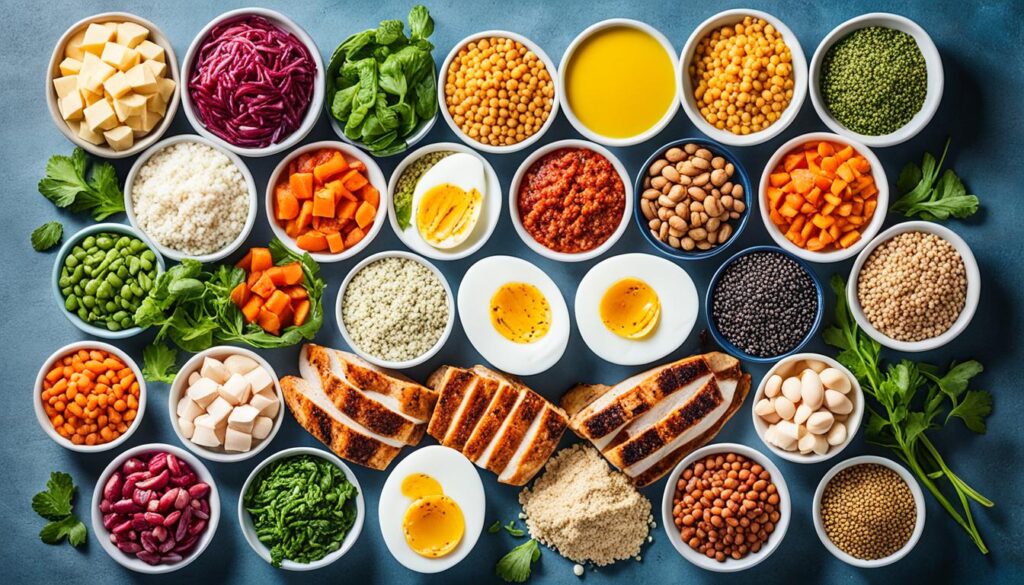
Building muscle and gaining weight healthily needs a balanced diet. Focus on these high-protein foods to help you reach your fitness goals.
Strength Training Exercises for Muscle Building
Strength training is key for gaining weight and building muscle. By using the right exercises, you can make your muscles grow and improve consistently.
Compound Exercises for Maximum Muscle Stimulation
Compound exercises are the heart of strength training. They work many muscles at once, helping you build strength and muscle fast. Some top exercises include:
- Barbell Squats
- Deadlifts
- Bench Press
- Pull-ups/Lat Pulldowns
- Overhead Press
These exercises hit a lot of muscles, like your legs, core, and upper body. This helps grow and develop your muscles overall.
Progressive Overload: The Key to Consistent Progress
Progressive overload is vital for muscle growth. It means slowly adding more weight, reps, or exercises over time. By pushing your muscles harder, they keep adapting and getting stronger.
| Exercise | Starting Weight | Week 4 Weight | Week 8 Weight |
|---|---|---|---|
| Barbell Squats | 135 lbs | 155 lbs | 175 lbs |
| Deadlifts | 185 lbs | 205 lbs | 225 lbs |
| Bench Press | 135 lbs | 145 lbs | 155 lbs |
By always upping the weight, reps, or exercises, you keep your muscles challenged. This leads to ongoing muscle growth and strength.

“The key to building muscle is to challenge your muscles with progressive overload, gradually increasing the demands placed on them over time.”
gain weight, healthy weight gain, muscle building, nutrition tips
Starting your fitness journey means focusing on gaining weight and building muscle. It might seem tough, but the right nutrition can make all the difference. Here, we’ll share key tips to help you achieve your fitness goals.
Prioritize Protein-Rich Foods
Protein is crucial for muscle growth. Add high-protein foods like lean meats, fish, eggs, dairy, and plant-based options to your meals. Make sure you get enough protein to help your muscles grow and repair.
Embrace Calorie-Dense Meals
To gain weight, you need to eat more calories than you burn. Choose meals that are full of nutrients but also pack a lot of calories. Think whole grains, healthy fats, and complex carbs. Also, snack on calorie-rich foods like nut butters, dried fruits, and smoothies to hit your calorie goals.
Optimize Macronutrient Balance
It’s important to balance your macronutrients while increasing your calorie intake. Aim for a diet full of protein, with some carbs and healthy fats. This mix supports muscle growth, keeps your energy up, and boosts your health.
Gaining weight healthily takes time and patience. By following these nutrition tips, you’re on the right path to building the muscle and look you want.
Meal Planning and Preparation for Consistent Gains
Planning your meals is key to gaining weight and building muscle. If you want to eat more calories and grow lean muscle, a good meal plan is crucial. It helps you get the right amount of calories and high-protein foods for muscle growth.
Meal Prep Strategies for Busy Lifestyles
Meal prepping is a big help if you’re always busy. Spend a few hours on the weekend to plan and prepare meals. This way, you’ll have nutritious, calorie-rich meals ready for busy days. It’s important for muscle growth.
- Batch cook high-protein meals like grilled chicken, roasted salmon, and lentil-based dishes.
- Prepare snacks and smoothie ingredients in advance for quick, on-the-go nutrition.
- Invest in meal prep containers to make packing and storing your meals easier.
- Experiment with slow cooker and Instant Pot recipes for hands-off meal preparation.
| Meal | Calories | Protein (g) | Carbs (g) | Fat (g) |
|---|---|---|---|---|
| Grilled Chicken Breast (6 oz) | 284 | 53 | 0 | 6 |
| Brown Rice (1 cup) | 216 | 5 | 46 | 2 |
| Roasted Broccoli (1 cup) | 55 | 3 | 11 | 3 |
| Total | 555 | 61 | 57 | 11 |
Using these meal prep tips, you can always have nutrient-rich, high-calorie meals. This makes it easier to keep a calorie surplus and support your muscle-building goals.
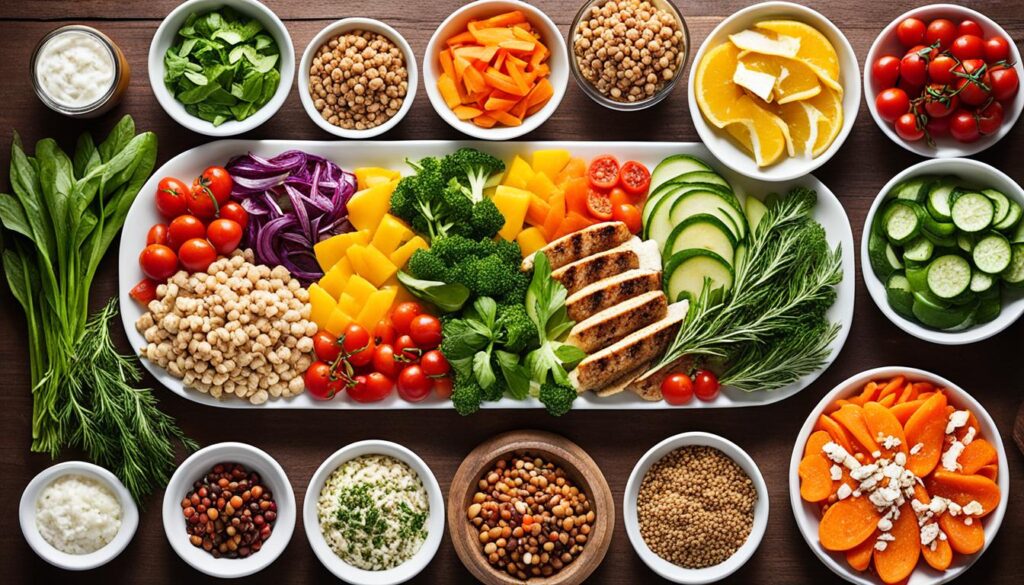
The Role of Weight Gain Supplements
A balanced diet is key for gaining weight and building muscle. But, some supplements can give you an extra boost. They are important for reaching your fitness goals.
Choosing the Right Supplement Stack
Choosing the right weight gain supplements is crucial. You need to know the different types and what they do. A good supplement stack can help you in many ways, like increasing calories, boosting protein, and helping with muscle recovery.
Here are some tips for picking a weight gain supplement stack:
- Protein Powders: High-quality protein supplements are key for muscle growth and repair.
- Mass Gainers: These supplements are packed with calories to help you gain weight.
- Creatine: Creatine boosts muscle strength and power, which helps with your workouts.
- Branched-Chain Amino Acids (BCAAs): BCAAs help with muscle recovery and reduce muscle damage from exercise.
| Supplement | Intended Benefit | Recommended Dosage |
|---|---|---|
| Whey Protein Powder | Muscle growth and repair | 20-30 grams per serving, 1-2 servings per day |
| Mass Gainer | Increased calorie intake | 1-2 servings per day, depending on individual calorie needs |
| Creatine Monohydrate | Improved strength and power | 5 grams per day |
| BCAA Supplement | Muscle recovery and repair | 5-10 grams per day, especially around workout times |
Remember, supplements work best with good nutrition and regular exercise. Always talk to a healthcare professional or a dietitian to pick the right supplements for you.
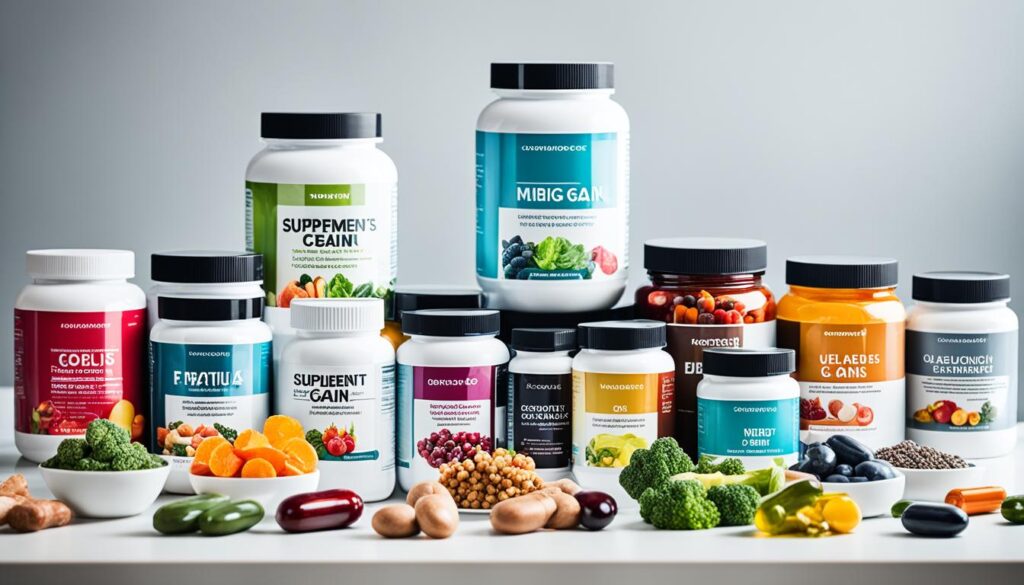
Managing Appetite and Portion Control
Getting enough calories to gain weight can be tough, especially if you eat less or struggle with how much to eat. But, with the right strategies and mindset, you can eat enough to support your muscle-building goals.
One good way is to eat foods that are high in calories but also packed with nutrients. Think avocados, nuts, nut butters, dried fruits, and healthy fats like olive oil or coconut oil. These foods help you get lots of calories without feeling too full.
Planning and preparing your meals is also key to managing your appetite and portion sizes. Prepping meals in advance lets you control what you eat and how much. This way, you make sure you get the right amount of calories and nutrients for your calorie surplus diet and meal planning goals.
- Divide your meals into smaller, more frequent servings throughout the day to keep your metabolism active and prevent feeling overly full.
- Try high-protein, high-carbohydrate snacks like Greek yogurt with granola or a protein shake with peanut butter to boost your calorie intake between meals.
- Drink plenty of water to stay hydrated, as not drinking enough can make you feel hungry.
Everyone is different, so you might need to try a few things to see what works best for you. With patience, consistency, and a focus on eating nutrient-dense foods, you can overcome these challenges and make progress toward your weight gain goals.
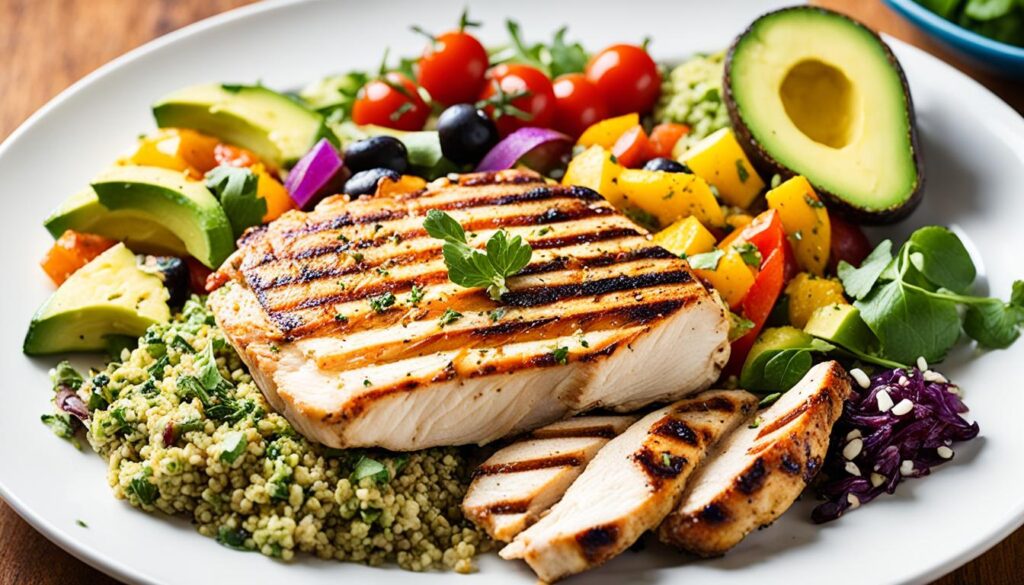
“The key to successful weight gain is not just about increasing your calorie intake, but doing so in a sustainable and healthy way.”
Hydration and Its Importance in Muscle Growth
Many people forget how key hydration is for muscle growth and health. As we work to gain weight and build muscle, drinking enough water is crucial.
Drinking enough water helps muscles work well and recover. It carries nutrients to muscles, takes away waste, and helps make new muscle tissue. Without enough water, muscles get tired and don’t work as well, slowing gym progress.
To keep up with your hydration, try to drink at least 8 cups (64 ounces) of water per day. You might need more or less based on your activity, the weather, and your body. Watch for signs of dehydration like dark urine, headaches, or feeling tired, and drink more water if needed.
Adding foods rich in electrolytes, like bananas, avocados, and leafy greens, to your meals can help with muscle building and staying hydrated. Also, think about getting a water bottle with lines on it to keep track of how much you drink.
“Proper hydration is the foundation for optimal muscle growth and recovery. Neglecting your water intake can undermine all your hard work in the gym.”
Staying hydrated is a key part of your nutrition and fitness plan. By focusing on it, you’ll make the most of your muscle building efforts and help your body gain weight and muscle.
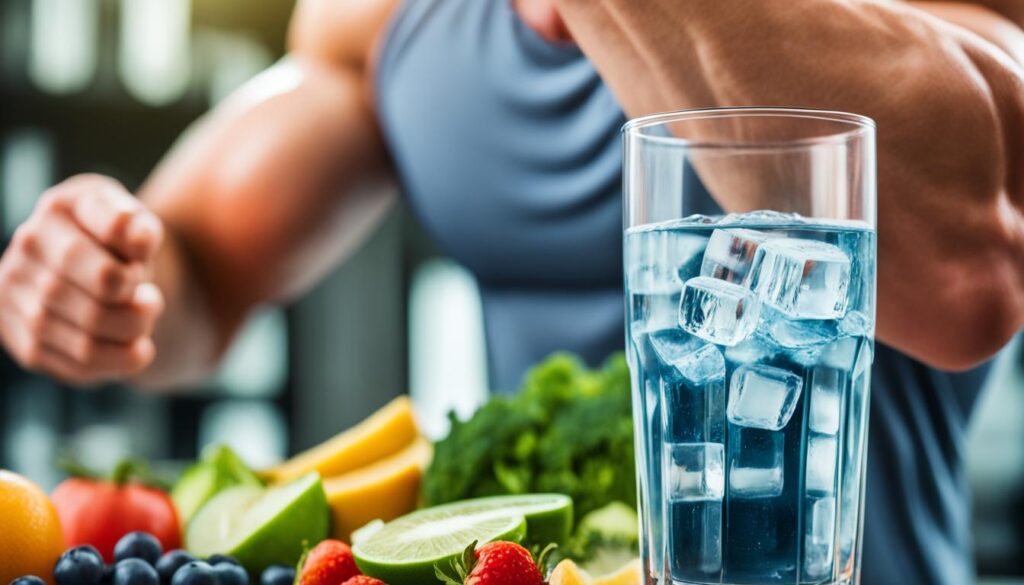
Overcoming Challenges and Plateaus
Gaining weight and building muscle can be rewarding but challenging. You might hit plateaus where progress seems to stop. But don’t give up – with the right strategies, you can get past them and reach your goals.
Strategies for Breaking Through Weight Gain Plateaus
One reason for weight gain plateaus is trouble keeping a calorie surplus. To fix this, try these tips:
- Check your calorie intake and increase it by 200-300 calories each day.
- Add more high-calorie foods like nuts, nut butters, avocados, and dried fruit to your meals.
- Keep up with strength training and increase the weight, reps, or volume to grow your muscles.
- Focus on getting 7-9 hours of good sleep each night to help with recovery and muscle growth.
Another challenge is feeling mentally and emotionally tired from the effort of gain weight and muscle building. To stay motivated:
- Set achievable goals to celebrate your progress.
- Find a supportive group of people who share your goals.
- Try different training and nutrition plans to see what suits you best.
Getting past plateaus requires patience, persistence, and being open to change. By using these strategies, you’ll be moving closer to your healthy weight gain and muscle building goals.

| Plateau Challenge | Suggested Strategies |
|---|---|
| Inability to Maintain Calorie Surplus |
|
| Mental and Emotional Fatigue |
|
Incorporating Cardiovascular Exercise for Overall Health
Strength training is key for healthy weight gain and muscle building. But, adding cardiovascular exercise also brings big health benefits. By mixing strength training with aerobic activities, you support your goals and keep fit.
Activities like brisk walking, jogging, cycling, or swimming boost your heart health and endurance. They make your body use oxygen better and help with weight gain by increasing energy and metabolism.
Finding the right balance between strength and cardio is crucial. Too much cardio can slow down muscle building by burning more calories and affecting your calorie surplus. Aim for 2-3 moderate-intensity cardio sessions a week. This can be 30-45 minutes of brisk walking or cycling, helping your health and fitness goals.
| Cardiovascular Exercise | Benefits for Healthy Weight Gain |
|---|---|
| Brisk Walking | Improves cardiovascular health, boosts metabolism, and supports overall energy levels. |
| Jogging | Enhances endurance, strengthens the heart, and can be combined with strength training for a balanced routine. |
| Cycling | Low-impact exercise that builds leg strength and cardiovascular fitness without overtaxing the body. |
| Swimming | Full-body workout that improves cardiovascular health, muscle tone, and flexibility without excess stress on joints. |
For successful healthy weight gain and muscle building, mix strength training, good nutrition tips, and cardio. This balance helps you reach your goals and stay healthy.

Tracking Progress and Adjusting Your Plan
It’s crucial to track your progress to make sure your weight gain and muscle-building work well. By keeping an eye on your progress, you can see what’s effective and what needs tweaking in your plan.
The Importance of Monitoring and Evaluation
Keeping a close watch on your progress is vital for reaching your goals. You should track your weight, body composition, strength, and overall performance. This helps you spot patterns, celebrate wins, and tweak your plan as needed. Using data helps you stay focused and improve your muscle building and healthy weight gain efforts.
- Record your weight, body measurements, and strength numbers regularly.
- Look at your progress to see what’s working and what needs tweaking.
- Change your diet, training, and supplements as needed to overcome plateaus or setbacks.
Regularly checking your progress keeps you motivated and stops you from getting stuck. This ensures you gain weight in a healthy and lasting way.
| Metric | Baseline | 4 Weeks | 8 Weeks | 12 Weeks |
|---|---|---|---|---|
| Weight (lbs) | 150 | 155 | 160 | 165 |
| Body Fat (%) | 15% | 16% | 17% | 18% |
| Bench Press (lbs) | 185 | 195 | 205 | 215 |
| Squat (lbs) | 225 | 235 | 245 | 255 |
By keeping a close eye on your progress and adjusting as needed, you can make sure your weight gain and muscle building stay on track. This ensures you keep seeing good results.
Mindset and Consistency: Keys to Long-Term Success
Want to gain weight, get healthy, and build muscle? It’s not just about eating right and working out. This part talks about how having the right mindset and sticking with it is key to success.
Having a positive mindset is vital for making progress. See challenges as chances to learn and get better, not as things to avoid. This mindset helps you stay motivated and strong when things get tough.
Being consistent is crucial for lasting success. Gaining weight and building muscle takes time and steady effort. Don’t get discouraged if you don’t see changes right away. Keep doing the right things, like eating well, lifting weights, and resting, and you’ll see big changes over time.
“Consistency is the foundation of progress. Small, daily actions add up to create lasting change.”
Here are ways to keep a positive mindset and stay consistent:
- Set realistic, achievable goals that provide a clear roadmap for your progress.
- Celebrate small wins and milestones along the way to stay motivated.
- Develop a flexible routine that can adapt to your changing life circumstances.
- Surround yourself with a supportive community of like-minded individuals.
- Practice self-care and stress management to prevent burnout.
Gaining weight and building muscle is a journey, not a finish line. With a growth mindset and consistent effort, you can achieve the long-term success you want.
Conclusion
As we wrap up this guide, I hope you’ve learned a lot about gaining weight healthily and building lean muscle. We covered the basics of calorie surplus, the importance of balanced macronutrients, and the key role of high-protein foods.
We talked about strength training, progressive overload, and meal planning. These are the main parts of our plan to help you build a stronger, more muscular body. We also looked at the use of supplements, managing hunger, and the importance of staying hydrated for muscle growth.
Gaining weight healthily is like running a marathon, not a sprint. It’s important to face challenges, celebrate wins, and keep up with your efforts. With persistence and flexibility, you’re on your way to the lean, muscular body you want. Best of luck on your fitness journey!


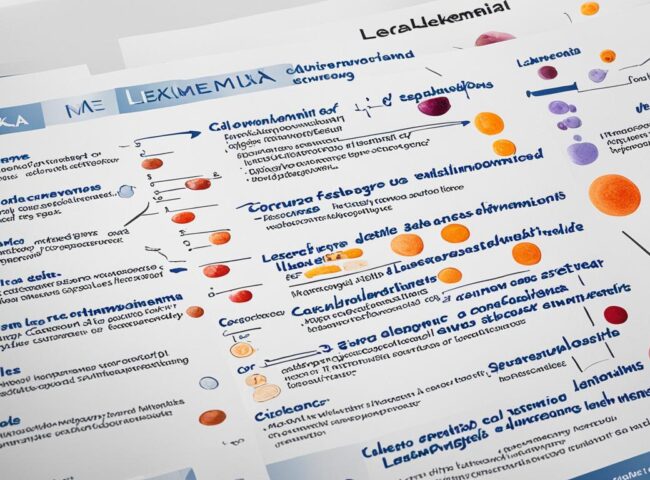



Leave feedback about this